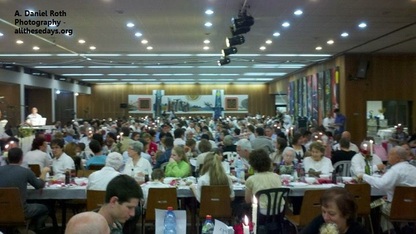 Passover at Kibbutz Mishmar Ha'emek, 2012 Passover at Kibbutz Mishmar Ha'emek, 2012 This also appears at Jewschool.com What’s this all about? Kvutzat Orev is a group of 6 people who built a communal Jewish life, rooted in Hashomer Hatzair, together in Israel and Brooklyn over 5 years. For the last 3 years we have been exploring different paths. Some in Israel and some in Brooklyn. During a group seminar last Spring we decided to start building a new, Jewish, and public Pesach (Passover) ritual. We have been meeting digitally every few weeks, researching our history and tradition, and developing a common language around goals and values. What follows, a version of the 4 glasses of wine that we drink throughout the Pesach Seder, is an amalgam of the values we set out to embody and some ideas for the rituals that may work with those values. Our process is continuing as we look for questions that need answering through collective culture and build a renewed way of understanding ourselves our people and our role in the world. Collective Belonging - Birth Eyes open to our role in the world as a collective force. We touch the freedom of self-determination in its infant and infinite forms. We seek family and we transmit culture from person to person and generation to generation. We are born into identity as we realize our lives are tied to the people and things around us. We engage in argument for the sake of heaven and we follow a path of learning and growth in Chevruta. We pray, eat, celebrate, question constantly and grow with others and when we touch self-determination we touch equality and oneness; the connected nature of the universe as the root idea in monotheism in Judaism. Material & Spiritual - Understanding
We develop a relationship with the ebb and flow of the blurred border between material and spiritual. The body and the soul are one entity in Jewish thought so vision takes root in actual space and time, and our spiritual intentions are grounded in materiality. The physical connection to shared place, through visionary practices like Yovel and Shmitta,and cyclical physical rites like fast days and burial, remind us of the finite time and space we have to act and change ourselves and the world around us. This understanding strengthens the knot of Tikkun Adam (fixing ourselves and humanity) and Tikkun Olam (fixing the world). The lofty and seemingly immaterial aim of modeling values for the world in internal praxis becomes sense-able and there is no other choice but to strive toward impact. Striving - Impact Time, for the Jewish people, is cyclical and simultaneously always moving upward in revolutions toward a conception of justice; a vision in which people live harmoniously with one another. We understand that the world can be better than it is now and that it is, in part, our responsibility to bring that about by creating all kinds of structures, institutions and fixes to help us get there. Those structures connect the Adam with the Olam with the future in mind, and an understanding that this revolution will be reinvented in future generations as time and ideas change us and our world. Resilience & Reinvention The Jewish people have a long history of reinvention, reading and re-reading our literature and finding new meaning as we, often radically, re-envision our practice while being firmly rooted in our traditions. Our people have survived for thousands of years in the face of incredible adversity and violence, as well as technological and political shifts. We are resilient, connecting identity to environment building new identities and new linguistic creations based on Hebrew and local languages - Yiddish, Ladino, Bukhari and more. We engage in renewal, like a coal saved from the fire. We grow and develop our shared core in new directions. Diversity marks the Jewish people and we reopen our eyes to our role as a collective force.
0 Comments
Your comment will be posted after it is approved.
Leave a Reply. |
Archives
May 2022
|
© 2022 A. Daniel Roth
 This work is licensed under a Creative Commons Attribution-NonCommercial-NoDerivatives 4.0 International License. |
